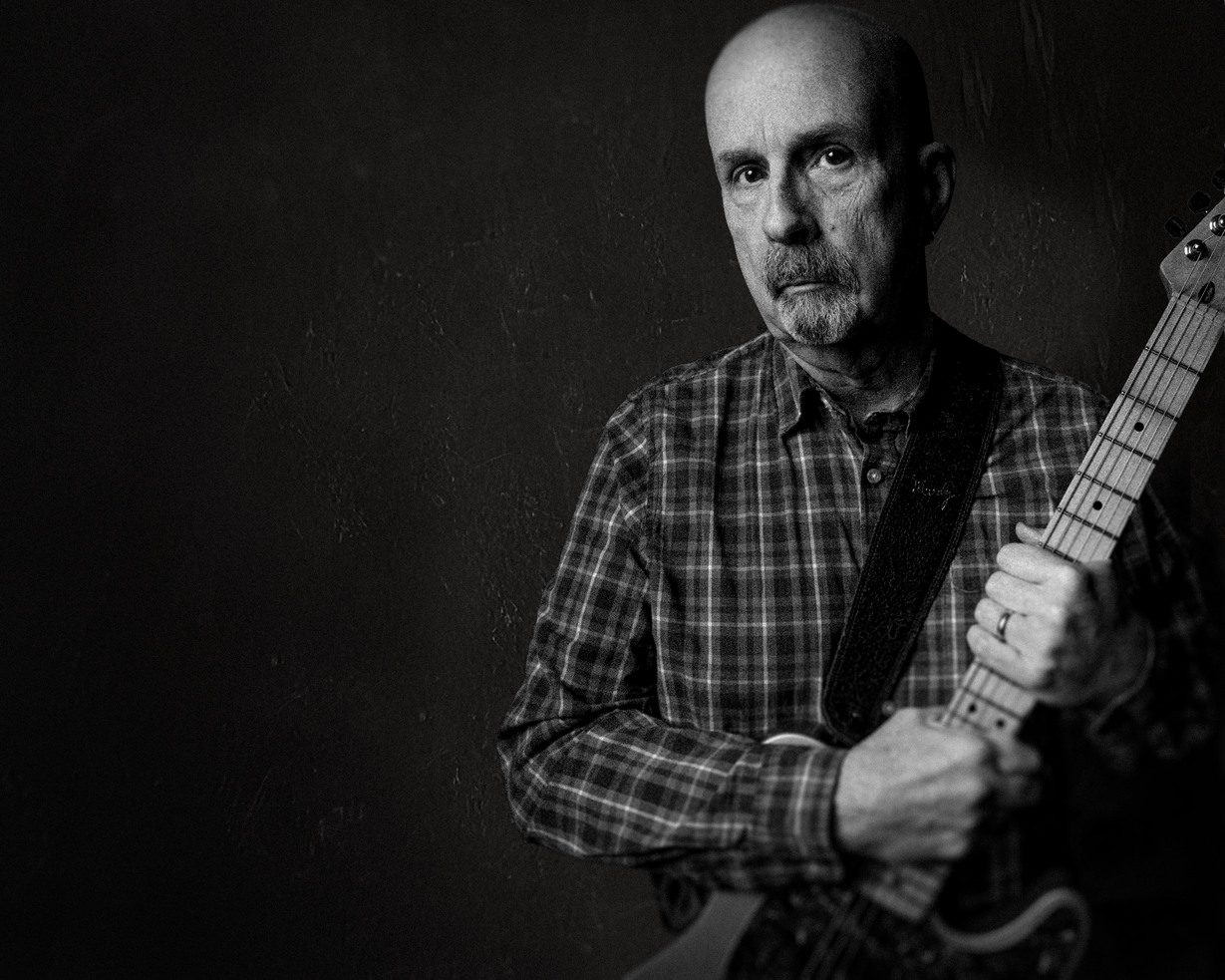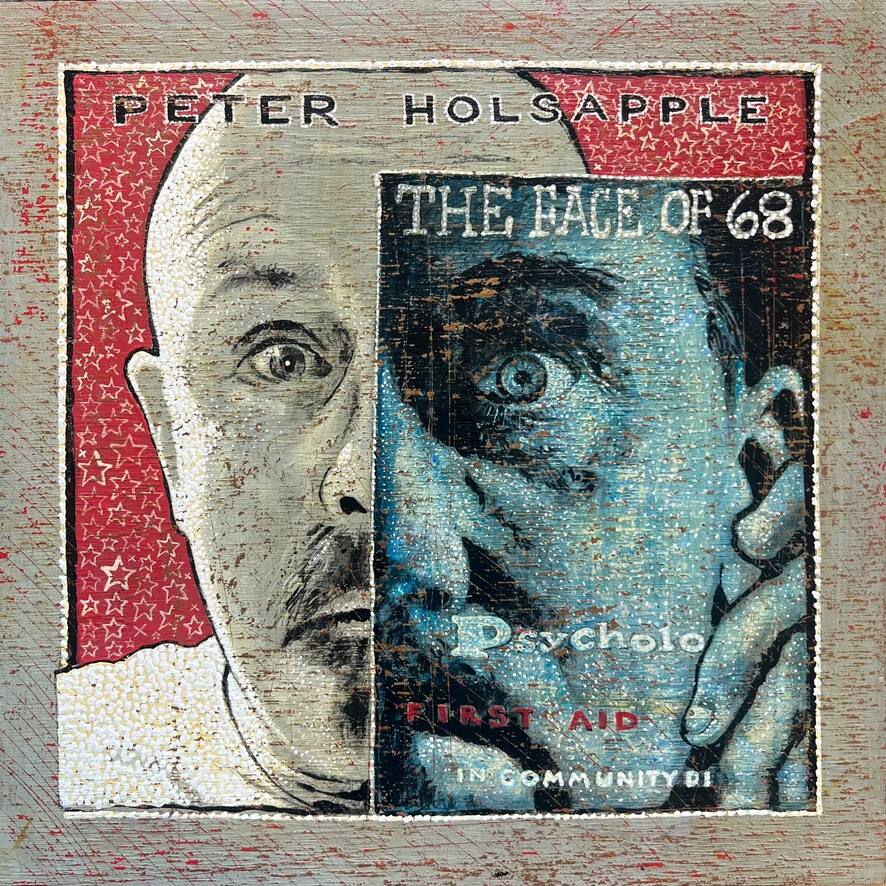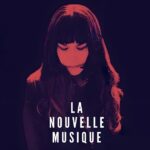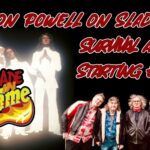
Peter Holsapple (Credit: Bill Reaves)
Peter Holsapple has never been the loudest man in the room. But from the fringes of power pop to the heart of American jangle, his fingerprints are all over the map, whether as co-captain of The dB’s, sideman to R.E.M. and Hootie, or chronicler of southern restlessness. He’s a craftsman of the overlooked detail, a melodic realist with no appetite for myth. Here, Holsapple chats with Jason Barnard about his new solo outing The Face of 68 and the art of songwriting.
I assume The Face of 68, acknowledged your age at the time of writing? How much of this record is autobiography, and how much is it you looking outward at the world that shaped you?
Right you are. I’d say that the emotions in every song are the truth and what I’ve felt as I get older, but some of those emotions are cloaked in a little fiction. You must do that to fit it into lyrics, I think, at least to keep the story interesting for the listener. And as I’ve aged, I’ve tried to be more circumspect in my lyrics, since I’ve gotten to observe a fair amount at this point.
You’ve always had a knack for making power pop sound muscular, but on this album, tracks like ‘Larger Than Life’ push into even heavier territory. Was this a conscious decision, or did the songs just demand it?
My plan was indeed to make it a grittier album than the rest of what’s in my catalog. After I’d written ‘Larger Than Life’ I took a spin through the songs I’d written since I put out Game Day in 2018. I found a bunch that I liked, and they all were based on electric guitar. In some ways, it’s also how I listened to music when I was twelve; from heavier songs by Spooky Tooth and The Move to early progressive rock like Yes, it probably reflects my musical upbringing before Big Star entered the picture. I think the songs dictated the style, and Rob and Robert executed that type of sound flawlessly.
Don Dixon’s involvement brings a certain production pedigree. Can you tell me about the role and influence he had on the LP?
When I started considering another album, I had a strategy meeting with my wife (the ‘she’ of ‘She and Me,’ natch) and we both thought that I’d done what I wanted with the previous solo record (played everything myself, did it all at home, produced it, engineered it, mixed it, etc.) and while that was fine, it might make more sense to do a different process for a new album. A producer, a rhythm section, a real studio with a real engineer. My short list of producers became a list of one, when I realized that Don was the most logical person to work with. We have a mutual appreciation of each other’s work and great communication that began sometime around 1971. When he agreed to produce The Face of 68, we went through a bunch of candidates and compared our selections and they matched up almost exactly. Don also felt that I had good arrangement ideas from my demos, and we went with them. It was important to me to only wear the hat of the recording artist, and not have to sweat bass punches or moving drum tracks around on my Pro Tools rig at home.
‘She and Me’ is a classic Holsapple love song,clever, direct, and heartfelt. How do you avoid the clichés of the form while still making something universally relatable?
That song had a whole different set of lyrics that did not pass muster, so I cannibalized a few lines and rewrote it. I admit that I did go to my resident professional proofreader friend Will Rigby to make sure that ‘she and me’ wasn’t odiously ungrammatical, and he cleared its usage for me. These lyrics are my attempt to write an appreciation of my long-suffering wife who has put up with my music career for many years, and who has kept me grounded and happy for twenty-plus years now. I haven’t written a lot of songs about her; the only other one I can think of is ‘She Won’t Drive In the Rain’ from Falling Off the Sky by The dB’s, which makes my total output directed toward her pretty acceptable, I think!
‘That Kind of Guy’ is a vinyl geek’s manifesto, packed with deep-cut references and a collector’s zeal. Be honest, how many of those records are actually sitting on your shelves?
I’d have to look. I have a bunch, for sure, thought! I’ve know ‘That Kind of Guy’ from helping them when I worked at record stores over the years and from looking in the mirror every day. I’ve tried to become more selective about what I buy at the store anymore, but I’m a sucker for a $4 copy of a Family album I don’t already have.

‘So Sad About Sam’ and ‘Larger Than Life’ both deal with loss, but in very different ways. Do you find grief easier to process through direct tribute or through allegory?
I don’t feel grief is easy to process in any way. Loss is comprehensive, it affects one deeply and eternally if the deceased is a friend or a mentor or both. Sam Moss was my local guitar hero growing up; Carlo Nuccio was the most inspiring musician I have ever gotten to play with. They both meant everything to me, as different as their roles were in my life, and I’ll never forget either one of them. And again, the song’s the thing–how does the emotion work inside a set of lyrics? How personal can I get?
The rhythm section of Robert Sledge and Rob Ladd gives this album a real trio feel, almost Cream-like in its interplay. How did their presence shape these recordings?
Hah! I can’t wait to tell them that, they’ll LOVE it! Yeah, those guys… they work together a lot, and I actually got to join them onstage at a local benefit concert a few years ago, where I sang “A Million Miles Away” (Plimsouls) and “Dance Hall Days” (Wang Chung) to a packed house at Cat’s Cradle in Carrboro. Both are eminently musical people–despite the fact we never sat in a room and rehearsed the songs, they came in prepared with charts and notes and plans, and they communicated between each other both on their instruments and between takes to tighten stuff up. I am fortunate that they were so enthusiastic about playing with me, and I’m glad they’ll be doing a couple local NC record release shows in mid-April with me.
The Continental Drifters’ influence lingers in ‘High High Horse.’ How do you think your time with that band altered your approach to songwriting, if at all?
Interesting you would say that, and I totally get it. My plan with this album was to escape the gravitational pull of The dB’s and Continental Drifters, and to try to make a whole ‘nother thing altogether, which I would say, for the most part, I did. But I can see how ‘High High Horse’ has a somewhat Drifterly sound and construction, which I also take as a nice compliment.
Being in the Continental Drifters I learned to wait my turn as songwriter until I really had something worthwhile to put forward. In The dB’s, being young and energetic, the songs came crashing out like a piñata emptying out. By the time I joined the Drifters and I was part of a songwriting collective of other amazing writers like Carlo, Ray Ganucheau, Gary Eaton, Vicki Peterson and Susan Cowsill, I got to marvel at the talent I was surrounded by. So I wanted to make sure that I was writing stuff that worked alongside my bandmates’ canons. I don’t think I could have ever written ‘Daddy Just Wants It to Rain’ if I hadn’t been in the Continental Drifters.
The humour in your lyrics,whether it’s the absurd specificity of ‘That Kind of Guy’ or the existential shrug of ‘The Face of 68’, adds a rare, self-aware charm to your work. Do you ever write a song and think, ‘Nope, too serious, needs a little more smirk’?
No, I just write until I think it makes sense and doesn’t distract from the subject of the song. I liked making a laundry list for ‘My Idea #49’ which is an old songwriting trope, I realize, but it fit perfectly into the structure. ‘That Kind of Guy’ I worry will be thought of as me upping the smirk/snark levels when I mean it as a love letter to record collectors and the people around them that they interact with.
‘One for the Book’ has this great West Coast folk-rock feel. Were there any particular records or artists that inspired that approach?
I bet it’s because it’s the one solitary song on The Face of 68 that features an acoustic rhythm guitar! I’m not sure if there’s any particular SF/LA records or bands that were a direct inspiration, but I sure do listen to a lot of early Quicksilver and Steve Miller Band albums to this day.
There’s a real immediacy to these recordings, finished in three and a half days, no wasted time. Do you think limitations like that help keep a record honest?
Absolutely. If you set aside four days to get the basic tracks and the lion’s share of vocals and overdubs, you don’t give yourself enough time to second-guess what you’re doing. Also, having a Don Dixon in the control room who’s doing the acute listening (along with our engineer, Jason Richmond) means he can make the decisions about how good the tracks are as they go down; it doesn’t require the whole gang to troop into the control room after every take and nitpick. And again, without having rehearsed these songs beforehand, they couldn’t help but be immediate and energetic performances. You can play a song to death just trying to record it, and I don’t think we did that here.
At this point in your career, what’s more gratifying: Writing a song you know will stand alongside your best, or hearing an old fan tell you how much one of your older songs meant to them?
I like both. The dB’s toured in 2024 and played songs from our first two albums to audiences full of people who were thrilled to get to hear them live; some were fans way back when the albums came out in England in 1981, and some were young whelks who found out about us from their parents’ record collections. They all took great pains to let us know how much the songs meant to them, and we were grateful we could give them a great show and make the songs sound good. So yeah, there’s that. But being in my ‘back 40’ at this point, it feels good to know that I haven’t been abandoned by the muse even now. What I would hope for most is for people who’ve followed my career since the 80s and 90s will find that The Face of 68 is an exciting bunch of new songs that appeal to and resound with them. That would be exceedingly cool.
‘Fireflies’ has a certain wistful magic, It feels like a song about memory itself. Is there a particular moment from your past that you had in mind when you wrote it?
No, ‘Fireflies’ is mostly fiction. Again, the emotions are real, and there are some vignettes in the lyrics that probably happened to me. But overall, I wanted to paint a swampy landscape with a certain amount of degeneracy in it, and then twist the knife at the end when its mere existence comes into question. I guess it’s one of those “how’s Lucy going to get out of this one” songs.
Having spent time playing with The Paranoid Style recently, did that experience push your guitar playing or songwriting in new directions?
It gave me a lot of self-confidence as a lead guitar player. In my career, I’ve been surrounded by really great players who can fire off a coordinated solo on a moment’s notice. I consequently became a pretty lazy guy when it came to guitar breaks, and I concentrated on being a good, steady rhythm guitarist for years. When I jumped into the Paranoid Style’s lead guitar slot, I had to think on my feet in the studio when we were cutting The Interrogator, and it was either dumb luck or some veil lifting on my part, but I executed some good solos on Elizabeth Nelson’s songs, and she and Tim Bracy gave me the thumbs’ up. I lay that kind of approval at the root of feeling that I could make this solo record and play all the lead parts myself.
You’ve been at this long enough to have watched the industry shift from vinyl to cassette to CD to MP3 to streaming, and now we’re back to vinyl again. Does the format matter to you?
The format is the least of my concerns, I would say. Although I am grateful to have this album coming out on a vinyl LP. Still my favorite format of all.
You’ve played with and been covered by an impressive list of artists: R.E.M., The Troggs, The Golden Palominos. What’s the most surprising reinterpretation of one of your songs you’ve ever heard?
Interesting question! Last year, my friends Sean Kelly and David Jenkins lovingly put together We Are All Drifters, a two-CD tribute to the band that accompanied Sean’s biography, White Noise and Lightning: The Continental Drifters Story. My old pal and songwriting hero Marshall Crenshaw took ‘Darlin Darlin’ and gave it new life in his capable hands. And Matt Keating did an eerie acoustic version of ‘Amplifier’ on a dB’s tribute CD, Stand-Ins for Decibels, that is worth hunting down.
You’ve had a long career full of left turns, collaborations, and reinventions. What’s still on your creative bucket list?
I wouldn’t mind cutting Game Day again with a live band. And one of these days, I’d like to see about putting together the makings of a jukebox musical of dB’s songs, before the market for jukebox musicals dries up.





What a great interview! Thoughtful questions, considered answers. Holsapple comes across as the smart and good man he is, and I’m looking forward to feeding The Face Of 68 onto the Consolette autochange spindle.
(I found this site through a search for the album – first time visit, definitely not the last!)